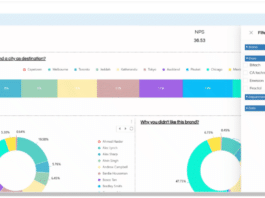While solutions like MySQL and PostgreSQL are countering each other, MongoDB has taken a step further and expanded its MongoDB Atlas to 14 Amazon Web Services (AWS) regions around the globe. The database as a service (DaaS) was first released in five AWS regions back in June 2016 to deliver enterprises a cloud space to let them store and maintain their important data.
“MongoDB Atlas is now available in most AWS regions, which means users around the world can leverage the database service with minimal graphical latency,” said Sahir Azam, vice president of cloud, MongoDB, in a statement.
With the latest development, MongoDB Atlas can now be accessed in the US, Asia-Pacific (APAC) and Europe, the Middle East and Africa (EMEA). The service is notably yet to reach the Chinese market but accessible in India directly from an AWS location in Mumbai.
You just need to opt for a VPC (virtual private cloud) Peering team to connect your VPCs to a new Atlas cluster. However, in-region backups, which may be considered as a key feature for many organisations, is currently exclusive to Dublin and the US Northeast.
New features to support global growth
Alongside announcing the expansion, MongoDB’s engineering team has brought some new features for the Atlas deployments. There is a live migration process to automate the import process of a pre-existing MongoDB 3.0 or above replica into MongoDB Atlas.
Additionally, MongoDB Atlas has now been upgraded with query backup snapshots. This new feature is touted to let you restore your data at the document level in minutes. “No longer do we need to restore an entire cluster when all we really need is a small subset of our data,” Azam said.
MongoDB Atlas has also brought the new Data Explorer that allows you to run queries, view metadata about your databases and collections and monitor index usage statistics without even restoring to the mongo shell. There is a new ‘Data’ button that provides the one-click access to the stored databases.




